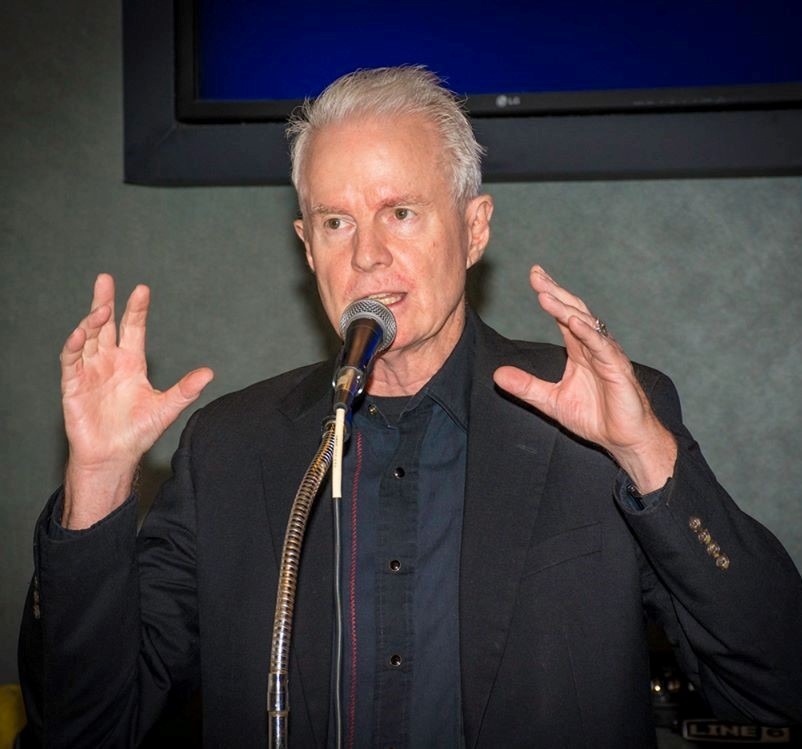
About David Kirby
David Kirby teaches at Florida State University. His collection The House on Boulevard St.: New and Selected Poems was a finalist for both the National Book Award and Canada’s Griffin Poetry Prize. He is the author of Little Richard: The Birth of Rock ‘n’ Roll, which the Times Literary Supplement of London called “a hymn of praise to the emancipatory power of nonsense” and was named one of Booklist’s Top 10 Black History Non-Fiction Books of 2010. His latest books are a poetry collection, Help Me, Information, and a textbook modestly entitled The Knowledge: Where Poems Come From and How to Write Them.
A Profile of the Author
Notes on “Galileo,” “The Return of Martin Guerre” and “Immortal Beloved”
A lot of poets’ descriptions of their books these days announce a subject matter: politics, history, relationships, climate change, what have you. Good for them, if the poems are good. But I can’t imagine writing that way. It sounds like journalism to me. I like to stumble around in language, to think less and work more. Some of my Elvii, like singer/songwriter Leonard Cohen and playwright Tom Stoppard, say they don’t think at all, yet theirs is some of the most beautiful, intelligent, moving work we can watch or listen to.
That said, my poems do share common elements. One of these is humor. That’s a good thing—everybody likes to laugh—but it can work against you. I’ve had people tell me, “I didn’t know poetry could be funny.” That’s understandable, because most of it isn’t. Most poets aren’t funny. Look at their head shots: if you’re not scowling like the lead singer of Mudhoney or the Screaming Trees, nobody’s going to take you seriously. I’m often identified as a funny poet, as though I’m only a funny poet. Even my own press says so: if you go to the LSU Press page and tap the icon for Help Me, Information, which is my latest book, you’ll see the tags they use to tell booksellers what the book is about begins with “Humor” and only lists “Poetry” second.
But don’t you like to use every tool in the toolbox? I do. Take a look at my three poems in this issue. They’re about heartbreak, suicide, hanging. Ha, ha! Yet there are a couple of chuckles in each. A poem should be like a letter to a friend or a good conversation. A poem should have everything in it.
Music, Food, Booze, Tattoos, Kittens, etc.
You know that Andy Warhol movie of a man sleeping for five hours? At first Andy thought about casting me, but I blew the audition. I was too boring.
Actually, Warhol is also one of my Elvii. When a reporter asked him who his favorite contemporary artists were, he said, “Oh, I like ‘em all.” That’s me. I eat everything, from chili dogs to foie gras. I like to shake up a craft cocktail, but I like milkshakes, too. I don’t have a pet, but a pet has me: Patsy the cat decided her needs weren’t being met at the neighbor’s house, so she moved in with us (the fact that I’m allergic to her has not altered her plans in the least). I think tattoos are awesome, but I don’t have any. A few years ago a student was over at our house, and I saw she had a tattoo that said, “Poetry is not reflection; it is refraction.” I thought that was pretty good, so I asked, “Who said that?” and my student said, “You did.”
Flaubert said, “Be regular and orderly in your life like a bourgeois, so that you may be violent and original in your work.” That’s me. I want my poems to be as action-packed as those Westerns I used to watch when I was a farm kid in Baton Rouge and rode my bike into town and plunked down my quarter at the Ogden or the Hart or the Paramount. It doesn’t matter who the artist is. The art? That’s what’s important.



Kick-ass work! I love it — and yes, I did laugh my way through it. and didn’t laugh my way all the way through it —